Find Help
More Items From Ergsy search
-
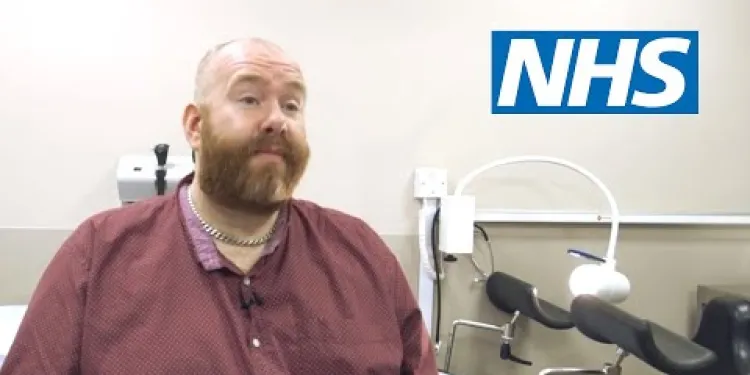
Cervical screening for transgender men | NHS
Relevance: 100%
-
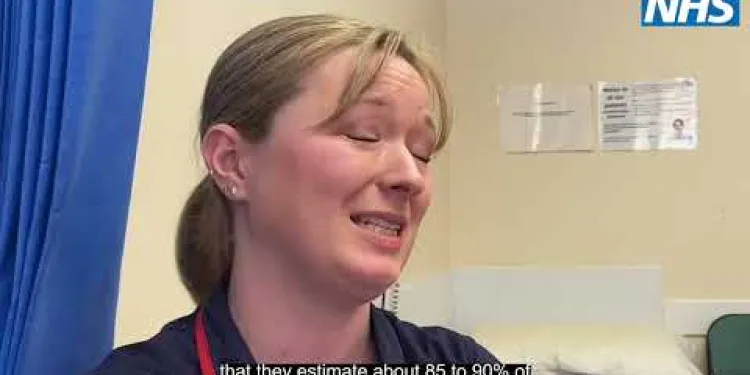
What is cervical screening (smear test)?
Relevance: 54%
-
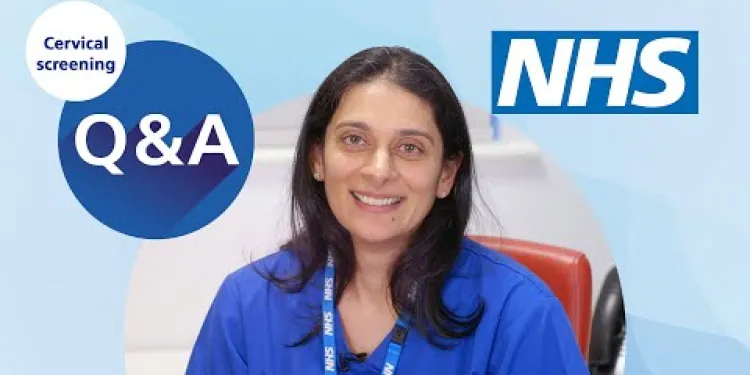
Cervical screening: Q&A | NHS
Relevance: 49%
-

The NHS is #StillHereToHelp with cervical screening
Relevance: 47%
-
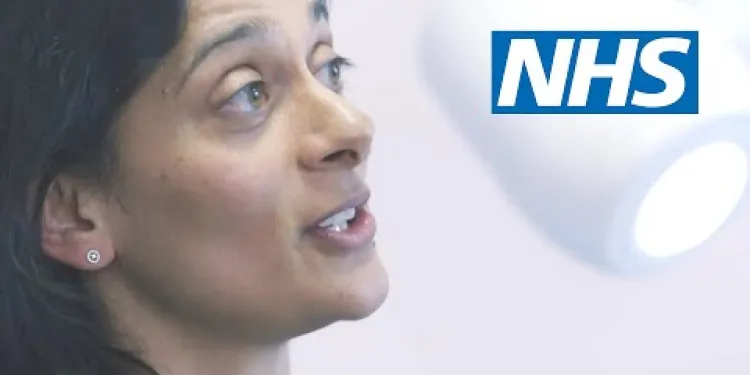
Cervical screening: what to expect | NHS
Relevance: 45%
-
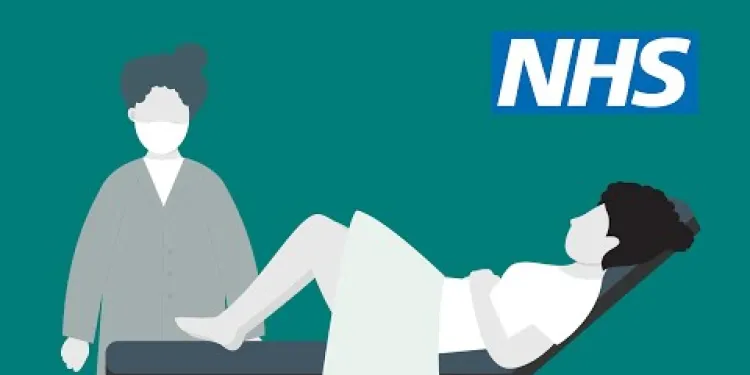
Cervical screening: how it's done | NHS
Relevance: 45%
-
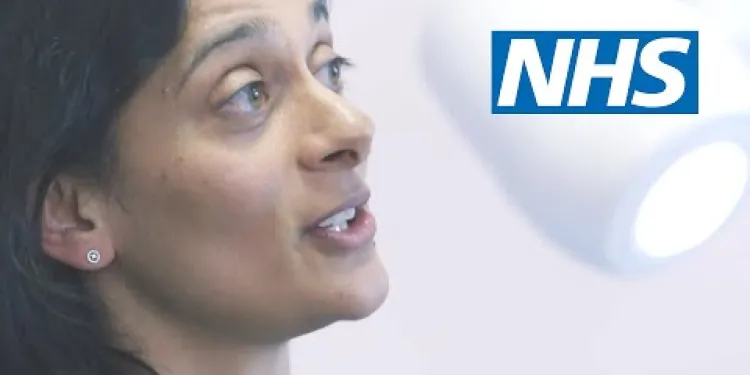
Cervical screening: what to expect | NHS
Relevance: 45%
-

NHSGGC - Cervical Cancer Screening - English
Relevance: 44%
-

When should cervical cancer screening begin?
Relevance: 43%
-

Cervical screening (smear test) – what’s it all about?
Relevance: 43%
-

Don’t ignore your cervical screening invite | NHS
Relevance: 42%
-

Accessing cervical screening with the right support for people with a learning disability
Relevance: 40%
-

Cervical screening for women who have experienced sexual assault | NHS
Relevance: 39%
-

What is the link between HPV and cervical cancer?
Relevance: 39%
-
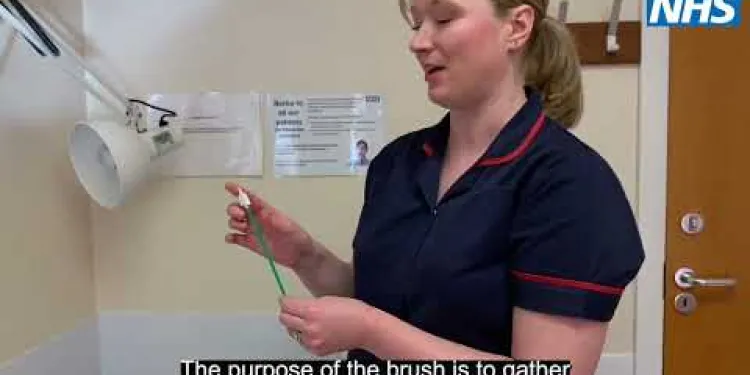
Booked in for your smear test (cervical screening) and not sure what to expect?
Relevance: 38%
-

Can HPV affect both men and women?
Relevance: 34%
-

Do men need the HPV vaccine?
Relevance: 33%
-

Health Screenings You Should Know About
Relevance: 32%
-
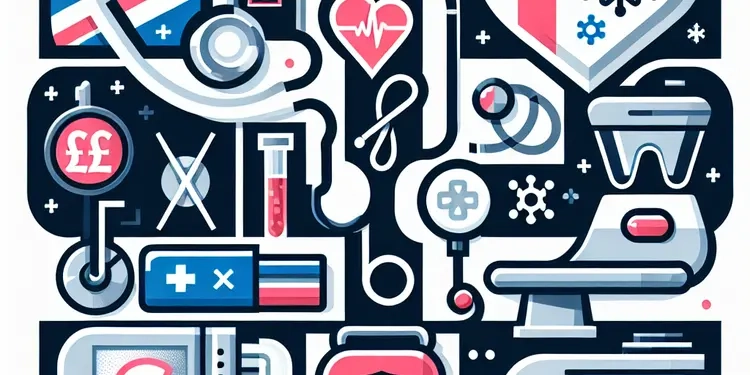
What kinds of cancer screening are available?
Relevance: 32%
-

Survivor of an Abdominal Aortic Aneurysm rupture appeals for men to take up NHS Screening Programme.
Relevance: 30%
-

What is cancer screening?
Relevance: 30%
-

Can men have mammograms?
Relevance: 29%
-

AAA (Abdominal aortic aneurysm) screening
Relevance: 25%
-

Why do men get prostate cancer?
Relevance: 24%
-

Can HPV lead to cancer?
Relevance: 24%
-
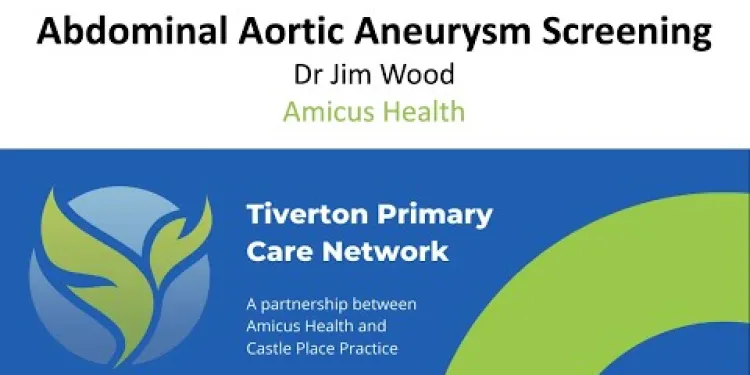
NHS Abdominal Aortic Aneurysm (AAA) Screening
Relevance: 23%
-

Abdominal Aortic Aneurysm (AAA) screening programme
Relevance: 23%
-

Eddie's Story - Abdominal Aortic Aneurysm (AAA) Screening
Relevance: 23%
-

Are men at risk of having their drinks spiked?
Relevance: 22%
-

Is HPV testing available?
Relevance: 22%
-

Your abdominal aortic aneurysm (AAA) screening appointment
Relevance: 22%
-

Are there symptoms of an HPV infection?
Relevance: 22%
-

NHS breast cancer screening
Relevance: 22%
-

Can men be perpetrators of honour based abuse?
Relevance: 21%
-

Can men in the UK transmit Zika virus if infected?
Relevance: 21%
-

Are men and women's pension ages equalized?
Relevance: 21%
-
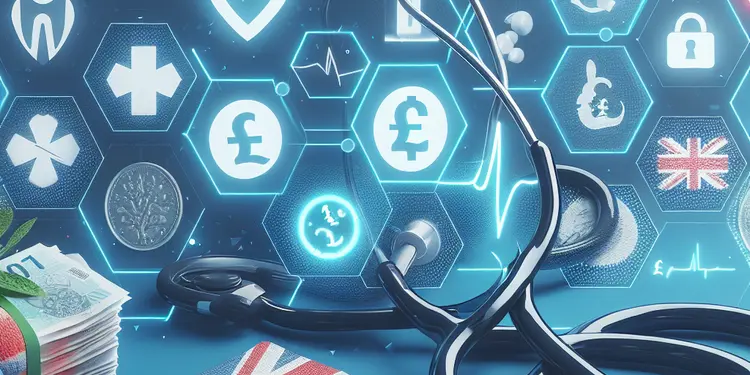
Are there any risk factors that increase the need for cancer screening?
Relevance: 20%
-
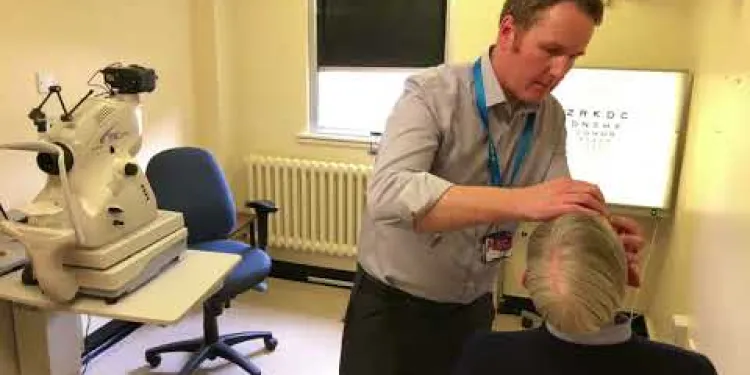
Derbyshire Diabetic Eye Screening - Diabetic Eye Screening
Relevance: 20%
-

What health problems can HPV cause?
Relevance: 20%
-
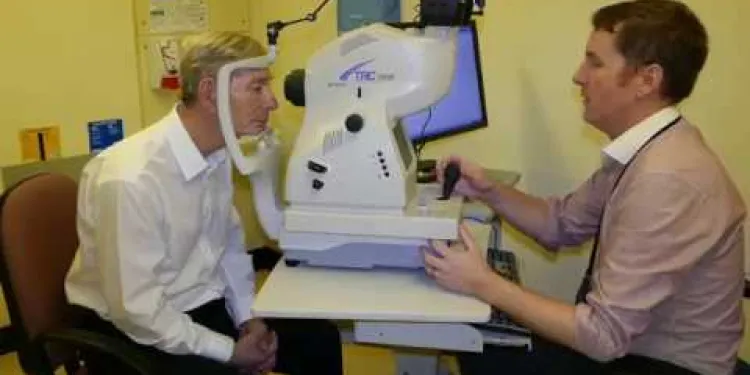
Derbyshire Diabetic Eye Screening - Your Screening Appointment
Relevance: 20%
Cervical Screening for Transgender Men | NHS
Understanding Cervical Screening
Cervical screening is a crucial health measure designed to detect abnormal cells in the cervix that may develop into cancer. It's often referred to as a smear test or a Pap test. The NHS provides this service to help prevent cervical cancer through early detection and treatment of any issues. This screening is important for anyone with a cervix, including transgender men.Eligibility for Cervical Screening
Transgender men who have not undergone a total hysterectomy (removal of the cervix) still have cervical tissue and are therefore at risk for cervical cancer. If you are aged 25 to 64 and registered as female with your GP, you will automatically receive invitations for cervical screening through the NHS. If you are registered as male, it's essential to inform your GP or healthcare provider to ensure you receive the necessary screenings.Preparing for the Screening
Preparation for a cervical screening involves booking an appointment with your GP or sexual health clinic. When planning your test, avoid periods and heavy discharge days, as these can affect the result of the test. If you are experiencing symptoms such as bleeding after sex, between periods, or post-menopause, it’s important to inform your healthcare provider regardless of your screening schedule.During the Screening
During the screening, a healthcare professional will use a speculum to gently open the vagina and collect cells from the cervix using a small brush. The test usually takes about 5 minutes. It's completely normal to feel anxious, but communicating any discomfort or concerns with your health professional can help make the process more comfortable.Receiving Your Results
Results are typically sent by post within two weeks. If abnormal cells are detected, you may be called back for further testing or treatment. It's important to attend any follow-up appointments to address potential issues promptly.Support and Confidentiality
The NHS understands that cervical screening might raise specific concerns for transgender men, including physical and emotional discomfort. Confidential support and advice are available, and you should feel empowered to discuss any aspect of the screening process with your healthcare provider. Services are designed to be inclusive and respectful of your needs and preferences.Conclusion
Cervical screening is a vital health practice that helps prevent cervical cancer. For transgender men, staying informed and proactive about screening is essential. By communicating openly with healthcare providers and taking advantage of NHS services, you can ensure your cervical health is monitored and protected.Cervical Screening for Transgender Men | NHS
What is Cervical Screening?
Cervical screening is a health check to find changes in the cervix that might turn into cancer. We also call it a smear test or Pap test. The NHS does these tests to help stop cervical cancer. Anyone with a cervix, including transgender men, should have this test.Who Should Get Cervical Screening?
If you are a transgender man and have a cervix, you still need to check for cervical cancer. This is true unless you have had surgery to remove the cervix (called a total hysterectomy). If you are between 25 and 64 and are registered as female at your GP, you will get a letter to invite you for screening. If you are registered as male, speak to your GP to make sure you get invited too.Getting Ready for the Screening
To get ready, make an appointment with your GP or go to a sexual health clinic. Try not to book your test during your period or when you have heavy discharge, as this can change the test results. If you have problems like bleeding after sex or between periods, tell your healthcare provider.What Happens During the Screening?
During the test, a healthcare worker will gently open your vagina with a tool called a speculum. They will use a small brush to collect cells from the cervix. The test takes about 5 minutes. It is normal to feel nervous. If you have any worries, tell your healthcare worker. They can help make it easier for you.Getting Your Results
You will get your results in the mail in about two weeks. If there are any changes in your cells, you may need more tests or treatment. It is very important to go to these follow-up appointments.Support and Privacy
The NHS knows that cervical screening can be a bit worrying for transgender men. They offer private support and advice. You should talk to your healthcare provider if you have any questions. The services are made to be kind and understanding of what you need.Conclusion
Cervical screening is very important for preventing cervical cancer. If you are a transgender man, it is important to know about screening and talk openly with your healthcare provider. Using NHS services helps keep your cervix healthy. Consider using tools like reminders to keep track of appointments, and talk to someone for emotional support if needed.Frequently Asked Questions
What is cervical screening?
Cervical screening is a preventive test that checks the health of the cervix to detect any abnormal changes in the cells that could potentially develop into cervical cancer.
Why is cervical screening important for transgender men?
Transgender men who have not undergone full surgical transition including removal of the cervix (hysterectomy) still have cervical tissue that could develop abnormal cells or cervical cancer. Early detection through screening is crucial for effective treatment.
How often should transgender men get cervical screening?
In the UK, it is recommended that anyone with a cervix between the ages of 25 and 64 receive cervical screening every 3 years if they are enrolled in the NHS Cervical Screening Programme.
Can I opt-out of cervical screening?
Yes, if you have undergone a complete hysterectomy and no longer have a cervix, you may opt-out of cervical screening. It's important to discuss this with your GP to update your medical records accurately.
Will the screening hurt?
Cervical screening might be uncomfortable, but it should not be painful. If you are concerned about discomfort, discuss this with the healthcare professional performing the test—they may be able to make accommodations to ensure your comfort.
Can I request a female healthcare professional for the screening?
Yes, you can request a female healthcare professional to perform your cervical screening. The NHS aims to provide a comfortable and supportive environment for all patients.
What should I do if I feel anxious about the screening?
It's normal to feel anxious. Speaking to your GP or nurse before the appointment can help address your concerns. They can provide information and support to make the process as comfortable as possible for you.
What happens during the cervical screening test?
During the test, a small brush is used to gently collect cells from the cervix. The sample is then sent to a laboratory for analysis to check for abnormal cells or HPV.
What if the results are abnormal?
If your results show abnormal cells, this does not mean you have cervical cancer. It indicates changes that need further investigation or monitoring. Your GP will discuss the next steps with you, which may include further tests.
Can testosterone therapy affect my cervical screening?
Yes, testosterone can cause changes in the cervical cells and the vaginal environment, which might affect the screening process. It's important to inform the healthcare professional performing the test about your hormone therapy.
Do I need to stop taking testosterone before my screening?
No, you typically do not need to stop taking testosterone before cervical screening. However, informing your healthcare provider about your hormone therapy can help them conduct the test more effectively.
Can I get cervical screening at an LGBTQ+ friendly clinic?
Many NHS clinics and GP practices provide LGBTQ+ friendly services. If you prefer, you can look for clinics that specifically advertise themselves as being accommodating for LGBTQ+ patients.
How can I prepare for my cervical screening appointment?
It's recommended to schedule your appointment when you're not on your period. Wear comfortable clothing and try to relax. You can also talk to your healthcare provider beforehand to discuss any concerns or preferences.
What should I do if I have experienced trauma and find cervical screening difficult?
If you have experienced trauma that makes cervical screening difficult, inform the healthcare professional. They can take extra steps to ensure your comfort and safety, including offering support or alternatives.
Where can I find more information or support?
For more information and support, you can visit the NHS website, speak with your GP, or contact organizations like Jo's Cervical Cancer Trust, which provide resources and support for individuals undergoing cervical screening.
What is cervical screening?
Cervical screening is a simple test for women. It checks for changes in the cervix. The cervix is the lower part of the womb.
This test helps find early signs of cancer. Finding and treating changes early can stop cancer from developing.
If you need help understanding the test, you can:
- Ask a nurse or doctor to explain it to you.
- Bring a friend or family member with you to the appointment.
- Use pictures or videos to learn more about the test.
Cervical screening is a health check-up for the cervix (the opening to the womb). It looks for any unusual changes in the cells. This helps to find problems early before they turn into something serious like cervical cancer.
Why Should Transgender Men Have Cervical Screening?
Cervical screening helps keep you healthy. It finds signs of cancer early, so it can be treated. This is very important for staying well.
If you are a transgender man and have a cervix, you do need to have this test. It can help protect you from cervical cancer.
Here are some tips to make it easier:
- Talk to your doctor. They can tell you how the test works.
- Bring a friend or family member with you for support.
- Ask questions if you are unsure.
- Use a calendar or reminder app to help you remember your appointment.
Transgender men who have not had surgery to take out their cervix still have cervix tissue. This tissue can get bad cells that might turn into cancer. Getting checked early can help find and treat these problems.
How often should transgender men have cervical checks?
Transgender men who have a cervix need to have cervical checks to help keep them healthy.
These checks are important because they look for signs of cancer.
It is a good idea to have a cervical check every few years.
You can talk to your doctor to find out how often you need this check.
Your doctor is there to help you stay healthy.
If you feel worried or unsure, you can ask someone you trust to come with you to the doctor for support.
In the UK, people aged 25 to 64 with a cervix should have a cervical screening test every 3 years. This is part of the NHS Cervical Screening Programme.
Can I say no to cervical screening?
If you do not want to have a cervical screening, you can say no. It is your choice. You do not have to do it if you do not want to.
If you need help to understand more about cervical screening, you can ask a friend or family member. You can also use tools like pictures or simple videos to learn more.
If you had surgery to take out your womb and cervix, you don't need to get a cervical screening test. Talk to your doctor, so they can update your medical records.
Will the test hurt?
The test might feel a little uncomfortable, but it shouldn't hurt. If you feel scared, you can ask a friend or family member to go with you. You can also bring a favorite toy or listen to music to help you relax.
Getting a cervical screening test might feel a bit uncomfortable, but it should not hurt. If you are worried about feeling uncomfortable, talk to the doctor or nurse doing the test. They can help make sure you feel okay.
Can I ask for a woman doctor or nurse for the check-up?
Yes, you can ask for a woman to do your health check. You just need to tell them when you book your appointment. This way, you can feel more comfortable during the check-up. If you need help, you can ask someone you trust to speak for you.
Yes, you can ask for a woman doctor or nurse to do your cervical screening. The NHS wants to make sure you feel comfortable and supported.
What can I do if I feel worried about the screening?
Feeling worried is okay. Here are some things that can help:
- Take deep breaths to calm down.
- Talk to someone you trust about your worries.
- Write down your feelings in a journal.
- Listen to relaxing music or try a calming app.
Remember, it's okay to ask for help if you need it.
It's okay to feel worried. Before your appointment, talk to your doctor or nurse. They can help you feel better by giving you information and support. This will make the appointment easier for you.
What happens in a cervical screening test?
A cervical screening test checks if your cervix is healthy.
The cervix is the opening to the womb.
The nurse or doctor will ask you to lie down.
They will use a small tool to gently open your vagina.
They will take a small sample of cells from your cervix.
This might feel a bit uncomfortable but it should not hurt.
If you feel worried, tell the nurse or doctor.
Taking deep breaths and relaxing can help.
Ask a friend or family member to come with you if you like.
During the test, a soft brush is used to gently take some cells from the cervix. The sample is sent to a lab to check for any bad cells or a virus called HPV.
What if the test results are not normal?
If your test shows unusual cells, it doesn't mean you have cervical cancer. It means some changes need to be checked or watched closely. Your doctor will talk to you about what to do next, like maybe having more tests.
Can testosterone treatment change my cervical test results?
Testosterone is a hormone medicine some people take. If you are taking testosterone, it is important to know if it can change the results of your cervical test.
If you have questions, ask your doctor or nurse. They can explain if testosterone might change your test results.
If reading is hard, you can:
- Ask someone to read with you.
- Use a reading tool that reads text out loud.
Yes, testosterone can change the cells in the cervix and the area inside the vagina. This might change how tests work. It's important to tell the doctor or nurse doing the test about your hormone treatment.
Should I stop taking testosterone before my check-up?
If you are not sure, ask your doctor or nurse. They can tell you what to do. You can also ask a friend or family member to help you remember and write down the answer.
No, you usually do not need to stop taking testosterone before a cervical screening test. But it is a good idea to tell your doctor or nurse that you are taking testosterone. This can help them do the test better.
Can I have a cervical screening at a clinic that is friendly to LGBTQ+ people?
Many NHS clinics and doctors are friendly to LGBTQ+ people. If you want, you can find clinics that say they are good for LGBTQ+ patients.
How can I get ready for my cervical screening appointment?
Cervical screening is a health check for the cervix. Here are some tips to help you prepare:
Before the Appointment
- Know What to Expect: It helps to know what will happen during the screening. You can ask a friend or family member who has had it before.
- Pick a Comfortable Day: Try to book your appointment for a day when you are not on your period.
- Wear Comfortable Clothes: Wear clothes that are easy to take off and put on, like a skirt or trousers.
During the Appointment
- Ask Questions: It is okay to ask the nurse any questions you have.
- Bring a Friend: You can take a friend or family member with you if it makes you feel better.
- Relax: Try to stay calm. Taking deep breaths can help.
These tips can help make your appointment easier. You can also use helpful tools like reminders on your phone or a note to remind you of your appointment date. Remember, it is okay to feel a bit nervous, but you are doing something good for your health!
Try to book your appointment when you are not having your period. Wear comfy clothes. It is good to try and stay calm. You can talk to your doctor before the appointment to share any worries or special requests you have.
What can I do if I feel upset or scared about cervical screening?
If you have felt hurt or scared before, cervical screening can feel hard. Here are some tips to make it easier:
- Take someone with you. A friend or family member can help you feel safe.
- Tell the nurse how you feel. They can be gentle and go slow.
- You can ask for a longer appointment so you have more time.
- You can stop the test at any time. Just say stop if you need to.
- Practice deep breathing. Breathe in slowly through your nose, and out through your mouth.
- Bring something that comforts you, like a soft toy or a calming picture.
It's okay to feel nervous. Tell the nurse and ask for help if you need it.
If you have gone through something scary or upsetting that makes cervical screening hard, tell the nurse or doctor. They can help make you feel safe and comfortable. They might offer different ways to do the test or give extra support.
Where can I find more help or information?
You can get more help or information from people, books, or online. Here are some tips:
- Ask a teacher or family member.
- Look for books at the library.
- Search the internet with help from an adult.
Using these tools can help you understand more. Don't be afraid to ask for help!
If you want more help, you can:
- Visit the NHS website.
- Talk to your family doctor (GP).
- Contact Jo's Cervical Cancer Trust. They have lots of information and can help you if you are having a cervical screening test.
Useful Links
This website offers general information and is not a substitute for professional advice.
Always seek guidance from qualified professionals.
If you have any medical concerns or need urgent help, contact a healthcare professional or emergency services immediately.
- Ergsy carfully checks the information in the videos we provide here.
- Videos shown by Youtube after a video has completed, have NOT been reviewed by ERGSY.
- To view, click the arrow in centre of video.
- Most of the videos you find here will have subtitles and/or closed captions available.
- You may need to turn these on, and choose your preferred language.
- Go to the video you'd like to watch.
- If closed captions (CC) are available, settings will be visible on the bottom right of the video player.
- To turn on Captions, click settings .
- To turn off Captions, click settings again.
More Items From Ergsy search
-

Cervical screening for transgender men | NHS
Relevance: 100%
-

What is cervical screening (smear test)?
Relevance: 54%
-

Cervical screening: Q&A | NHS
Relevance: 49%
-

The NHS is #StillHereToHelp with cervical screening
Relevance: 47%
-

Cervical screening: what to expect | NHS
Relevance: 45%
-

Cervical screening: how it's done | NHS
Relevance: 45%
-

Cervical screening: what to expect | NHS
Relevance: 45%
-

NHSGGC - Cervical Cancer Screening - English
Relevance: 44%
-

When should cervical cancer screening begin?
Relevance: 43%
-

Cervical screening (smear test) – what’s it all about?
Relevance: 43%
-

Don’t ignore your cervical screening invite | NHS
Relevance: 42%
-

Accessing cervical screening with the right support for people with a learning disability
Relevance: 40%
-

Cervical screening for women who have experienced sexual assault | NHS
Relevance: 39%
-

What is the link between HPV and cervical cancer?
Relevance: 39%
-

Booked in for your smear test (cervical screening) and not sure what to expect?
Relevance: 38%
-

Can HPV affect both men and women?
Relevance: 34%
-

Do men need the HPV vaccine?
Relevance: 33%
-

Health Screenings You Should Know About
Relevance: 32%
-

What kinds of cancer screening are available?
Relevance: 32%
-

Survivor of an Abdominal Aortic Aneurysm rupture appeals for men to take up NHS Screening Programme.
Relevance: 30%
-

What is cancer screening?
Relevance: 30%
-

Can men have mammograms?
Relevance: 29%
-

AAA (Abdominal aortic aneurysm) screening
Relevance: 25%
-

Why do men get prostate cancer?
Relevance: 24%
-

Can HPV lead to cancer?
Relevance: 24%
-

NHS Abdominal Aortic Aneurysm (AAA) Screening
Relevance: 23%
-

Abdominal Aortic Aneurysm (AAA) screening programme
Relevance: 23%
-

Eddie's Story - Abdominal Aortic Aneurysm (AAA) Screening
Relevance: 23%
-

Are men at risk of having their drinks spiked?
Relevance: 22%
-

Is HPV testing available?
Relevance: 22%
-

Your abdominal aortic aneurysm (AAA) screening appointment
Relevance: 22%
-

Are there symptoms of an HPV infection?
Relevance: 22%
-

NHS breast cancer screening
Relevance: 22%
-

Can men be perpetrators of honour based abuse?
Relevance: 21%
-

Can men in the UK transmit Zika virus if infected?
Relevance: 21%
-

Are men and women's pension ages equalized?
Relevance: 21%
-

Are there any risk factors that increase the need for cancer screening?
Relevance: 20%
-

Derbyshire Diabetic Eye Screening - Diabetic Eye Screening
Relevance: 20%
-

What health problems can HPV cause?
Relevance: 20%
-

Derbyshire Diabetic Eye Screening - Your Screening Appointment
Relevance: 20%


